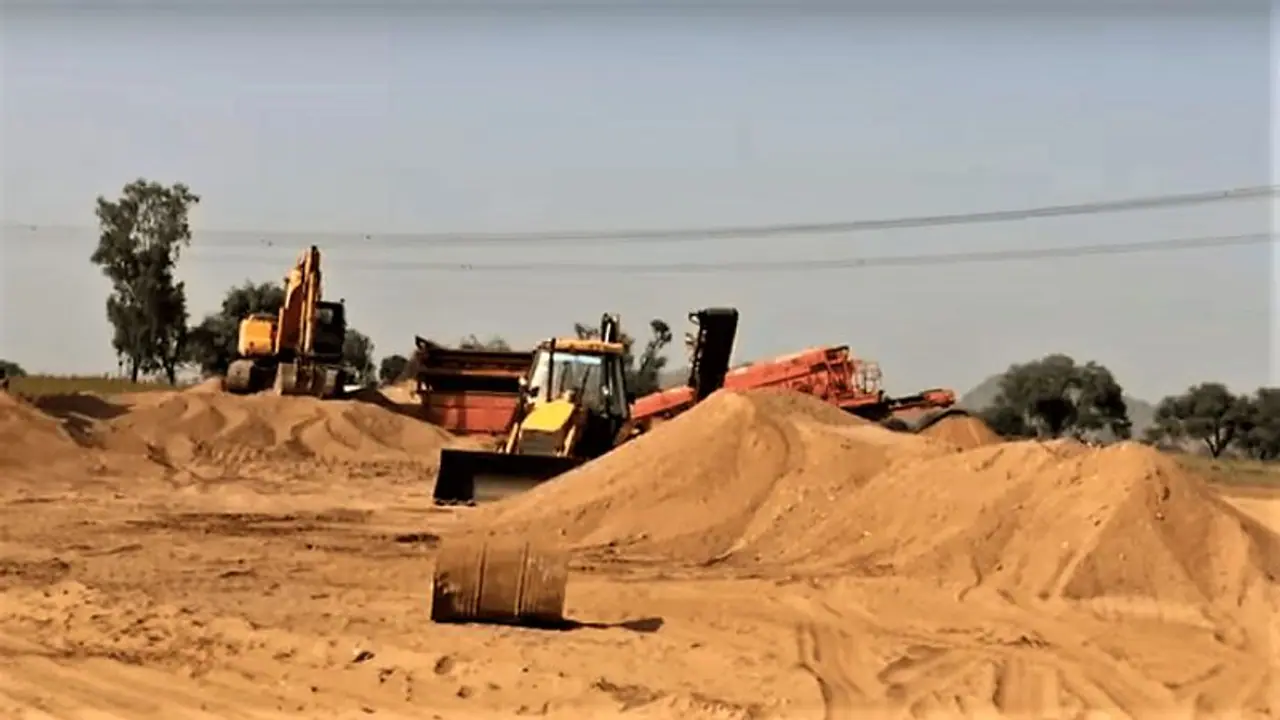Illegal sand mining is rampant along the Tungabhadra River in Hoovinahadagali, Karnataka, with daily extraction in multiple villages. Despite clear regulations, authorities remain inactive, causing environmental harm and revenue loss.
Hoovinahadagali: Illegal sand mining continues unchecked along the Tungabhadra River and its surrounding areas in Hoovinahadagali taluk, Vijayanagara district, with the district administration appearing powerless to curb the menace. The river, which flows through the taluk for approximately 80–90 km, has become a hotspot for illegal mining due to its abundant sand deposits and lack of regulatory oversight.

Villages like Haravi, Banimatti, Mailar, Honnuru, Navali, Sovenahalli, and Hakkandi witness daily illegal sand extraction. Even near the bridge connecting Haravi and Haranagiri, where mining within 1 km is strictly prohibited by the Department of Mines and Geology, sand is being extracted with impunity. This blatant violation not only threatens the environment but is also causing a substantial loss of revenue for the government. Authorities and the police seem to be turning a blind eye.
Matka gambling, illicit liquor trade, and ration rice black marketing thrive
Matka gambling is rampant in the taluk, with no significant action being taken. Despite laws against these activities, minor cases are occasionally filed, doing little to deter the operations. The unchecked gambling racket is pushing economically vulnerable families deeper into poverty.
Another grave concern is the illegal sale and black marketing of ration rice. Many ration card holders are reportedly selling their subsidised rice at ₹12–₹13 per kg to illegal buyers, allegedly under the influence of powerful individuals. This rice is then stored in a warehouse on the town’s outskirts and transported via lorries during the night. Despite multiple complaints, authorities remain hesitant to take action, fuelling public suspicion.
Liquor, meanwhile, is more accessible than essential supplies like milk in several villages. It's illegally transported in autos and bikes from various shops to tandas and villages and sold in unlicensed shops, roadside eateries and homes. Despite repeated public complaints, enforcement remains weak, and many blame influential locals for shielding these operations.
"Milk isn't even supplied to our village, but illegal liquor is available in unlicensed shops from early morning. We've complained to excise officials many times, but no action is taken. They sell liquor at double the price, ruining the lives of villagers," said Anjaneya, a resident of Mailar.
Despite the District In-charge Minister's warning in a recent progress review meeting to curb illegal activities, these continue unabated, which is a matter of grave concern.


